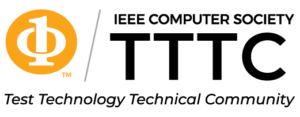
DEPENDABILITY CHALLENGES AND SILICON LIFE CYCLE MANAGEMENT FOR EMERGING SOCS
Speaker: Jyotika Athavale – Synopsys (US), 2024 President of the IEEE Computer Society
July 3 – 09:00 – 10:00
Abstract: With the upsurge in adoption of leading-edge technology nodes for reliability and safety critical systems, and the advances in AI accelerators, this keynote will discuss the challenges and implications of quality, functional safety, and reliability on all aspects of the SOC lifecycle. It will also discuss new standardization efforts in development, to ensure that safety, quality and reliability requirements are met across dependable application domains, including automotive and data centers. The keynote will cover current and future technology trends and discuss the resiliency challenges for emerging SOCs, including silent data corruption and the need for predictive maintenance during in-field operation. It will also illustrate how Silicon Lifecycle Management (SLM) family of products improve silicon health and operational metrics at every phase of the device lifecycle.
Bio: Jyotika is a Director, Silicon Lifecycle Management & RAS architecture at Synopsys, leading quality, reliability and safety research, pathfinding and architectures for data centers and automotive safety critical systems. Prior to Synopsys, she was Lead Technologist, Functional Safety Architecture at NVIDIA. Prior to NVIDIA, Jyotika was Principal Engineer (Director) at Intel Corporation leading corporate-wide RAS and Functional Safety architectures.
Jyotika also serves as the 2024 President and Distinguished Visitor of the worldwide IEEE Computer Society, overseeing overall IEEE-CS programs and operations.
She leads and influences several international standardization initiatives in the area of dependability. Jyotika chairs the IEEE P2851 family of standards on Functional Safety interoperability, which has WG membership from over 30 companies. For her leadership in international safety standardization for IEEE P2851, Jyotika was awarded the 2023 IEEE SA Standards Medallion. And for her leadership in service, she was awarded the IEEE Computer Society Golden Core Award in 2022.
She was recognized as a Distinguished Alumna by her alma-mater VJTI. Jyotika has authored patents and many technical publications in various international conferences and journals. She has pioneered & chaired international workshops and conferences in the field of dependable technologies.

FAULT-TOLERANT QUANTUM COMPUTING: WHERE ROBUSTNESS IS A REQUIREMENT, NOT A FEATURE
Speaker: Robert Wille – Technical University of Munich (DE), Chief Scientific Officer at the Software Competence Center Hagenberg (AT)
July 4 – 09:00 – 10:00
Abstract: Quantum computing is a promising new technology with exciting new applications. But quantum computers are heavily subject to errors – making the “robust” design of corresponding applications a necessity. Currently, the discipline is moving from Noisy Intermediate-Scale Quantum (NISQ) systems (with small hardware in which errors are “accepted”) to Fault-Tolerant Quantum Computing (with techniques that is advanced enough to actually deal with those errors). This requires efficient design of fault-tolerant algorithms – a highly non-trivial endeavor for a technology that (1) prohibits the naive cloning of information, (2) potentially destroys encoded information by measurements, and (3) has error rates resulting in a white noise output already after only a few thousand operations. The IOLTS community, with its 30-year-long expertise in robustness, fault-tolerance, etc., certainly can make substantial contributions to eventually overcome these challenges (and avoid that the quantum computing community “re-invents the wheel”). This talk aims to make connections between both communities by providing a brief summary about what quantum computing is all about and how, together, we can make it fault-tolerant.
Bio: Robert Wille is a Full and Distinguished Professor at the Technical University of Munich, Germany, and Chief Scientific Officer at the Software Competence Center Hagenberg, Austria (a technology transfer company with 100 employees). His passion for Computer Science took him into the lecture halls of various universities. In the research lab, he is reaching out to explore how future computers may work and shall be designed. This frequently let him cross disciplines and engage in topics including Electrical Engineering, Physics, Biology, and more.






